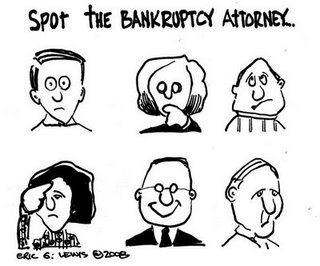***
IP Vices and Crimes
March 18, 2009 8:51 AM
The 18 or so articles I've written about "intellectual property"--elaborating on a book I consider to be a seminal work of our epoch, Against Intellectual Monopoly--generated floods of email like I've never seen on any topic. The thing that gets people going is the conclusion: in a free market, there should be no legal grants of patent or copyright.
What many people do--and this is rather depressing from the point of view of a writer--is seize on the conclusion, ignore the reasoning and arguments, and then attempt an instantaneous, arm-chair refutation.
It always goes something like this: "Oh, you are telling me that I could just steal this article that you wrote, even put my name on it, sell it and take the money, and there would be nothing wrong with doing that?"
Some go even further to actually do this: put their names on it, post it somewhere, and send me the link.
I think precisely what you are thinking: "What a jerk!"
I'm not sure what other kind of response they expect from me. They must really think I will say: "Oh, this is so shocking! I had not considered that someone might actually do this to me if we got rid of the U.S. Copyright Office! My goodness, this kind of thing cannot be tolerated. I was completely wrong in everything I said. I too am grateful to the state for all it does to protect my intellectual creations and my good name."
Sorry to say, this is not my response. My detailed response actually goes as follows: "If you do that in a free society, you will not be arrested by the police or experience physical coercion blessed by official mandate. However, everyone is free to regard you as a poseur, a wretch, a menace to society, and wholly lacking in credibility. If having a good reputation counts to you, it's probably not a good idea to pretend to have written something that you have not in fact written."
The difference here comes down to a wonderful distinction that was made by Lysander Spooner in the 19th century. He was careful to explain the difference between a vice and a crime. A crime involves aggressive force or threat of aggressive force against another person or privately owned property. A vice, however, is a much larger category of behaviors that don't involve invasion of person or property.
Vices can involve lying, being nasty to others, eating like a pig in public, abusing oneself with drugs or liquor, failing to shower and thereby stinking to high heaven, swearing in public, betraying benefactors, rumor mongering, displaying ingratitude, not keeping commitments, being a shopaholic, being a greedy miser, failing to do what you say you are going to do, making up stories about other people, taking credit for things you didn't do, failing to give credit where it is due, and other things along these lines.
In a free society, vice is control through decentralized social enforcement of social, ethical, and religious norms. The great problem of statism is that it turns vices into crimes, and then when the law is repealed, people forget that there are, after all, certain social norms that nonetheless need to be upheld and will be upheld once society is managing itself rather than being managed by the state.
Consider the case of classroom plagiarism, for example. A teacher wrote to me with a concern that the repeal of intellectual property law would make it more difficult to punish students for turning in work that claimed to original but was actually copied from elsewhere. I pointed out that the police and courts are not involved in the enforcement of classroom rules now, so why would a change in federal legislation be any different? Plagiarism is still plagiarism.
IP law has really had the effect of distorting our society's sense of all of these matters. It has made everyone too unwilling to admit our dependence on imitation and emulation as institutions that permit and encourage progress. It has made people too shy to copy the success of others and admit to doing so. Writers, artists, entrepreneurs all live with this weird burden of expectation that everything they do must be completely original and they must never draw from others sources. It's preposterous!
On the other hand, we are too quick to credit the state for preventing the mass outbreak of old-fashioned vice. Even without copyright and patent, some kinds of behaviors and practices will remain shoddy, unseemly, ungracious, conniving, and social unacceptable. What, for example, would you say about a local author who claim to write a new play that turned out to be written by Shakespeare? Doing this is perfectly legal right now. But the person would be regarded as a lout and a fool for the rest of his life.
Hence, the repeal of "intellectual property" law does not mean some sort of crazed free-for-all chaos in which no one can be entirely sure of anyone's identity, creations, who wrote what, what company did what, where credit is due, what one's commitments are, and the like. What we will gain is a great sense of our moral obligations to each other.
And in the absence of the state's grant of monopoly privilege, we will become ever more vigilant in giving credit where it is due. You still have to be a nice person who acts with a sense of fairness, equanimity, and justice, as conventionally understood. If you don't, the state will not crack your skull, but you will lose something profoundly important.
In other words, in absence of IP, we gain a greater sense of the distinction between what is vice and what is crime, and a better means for dealing with both.






